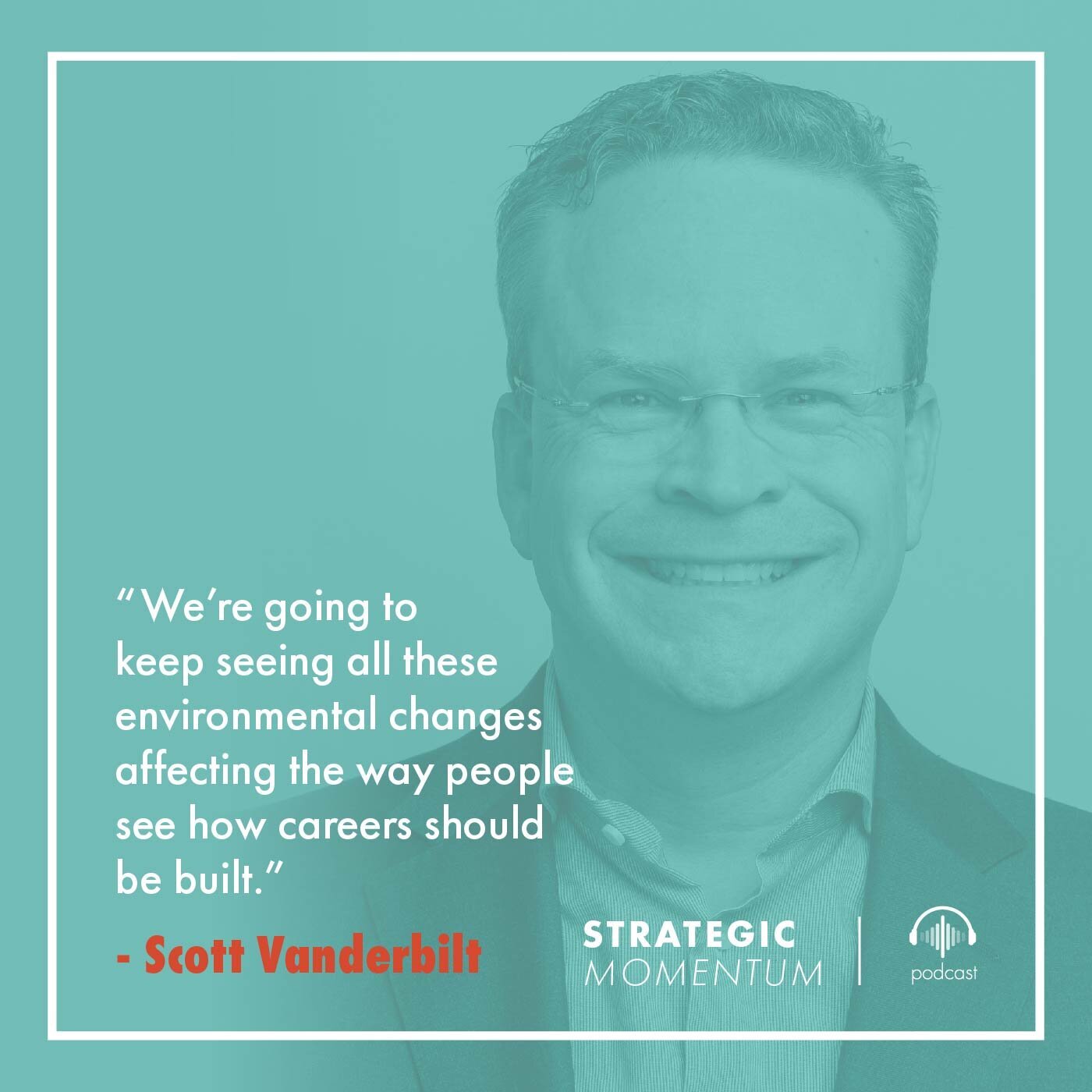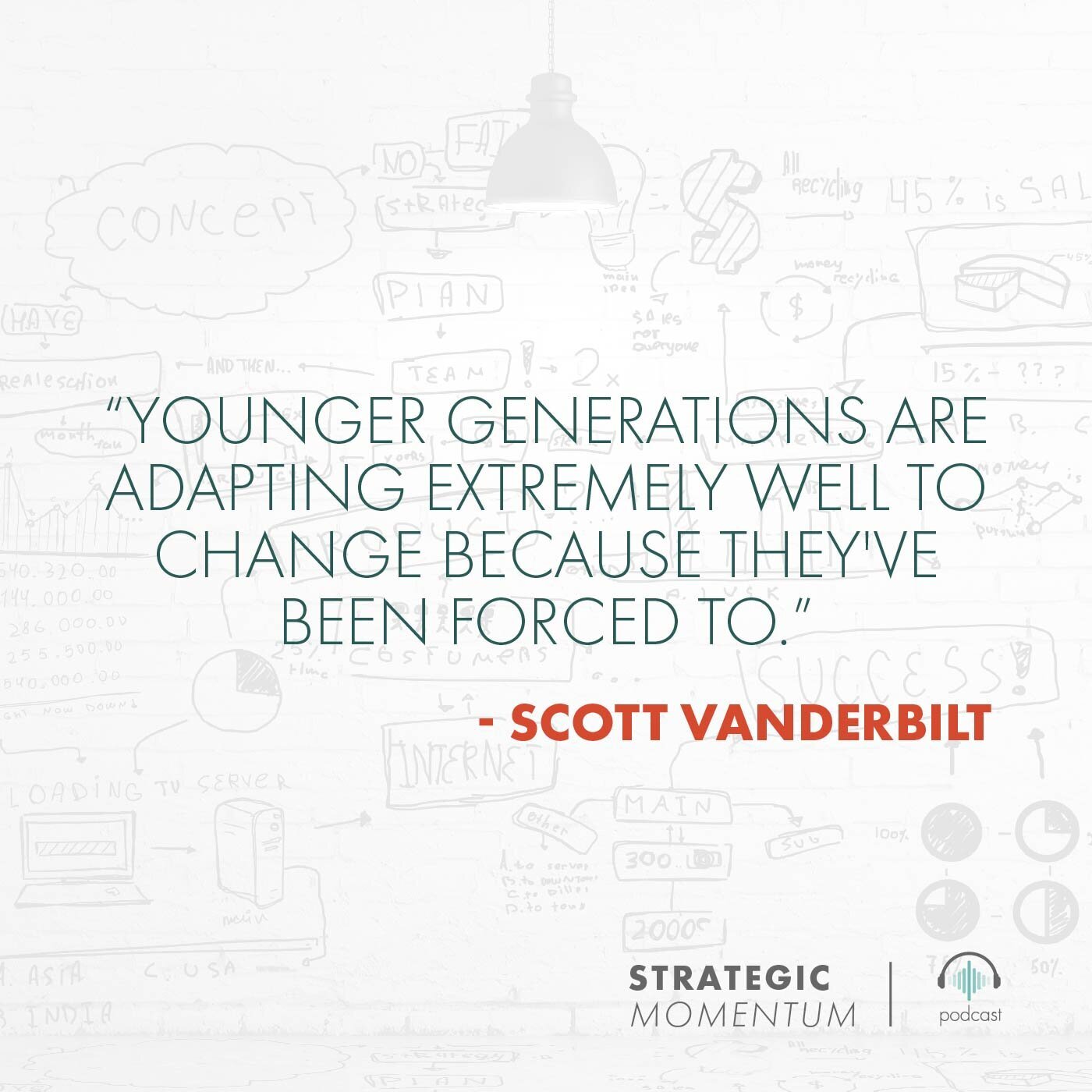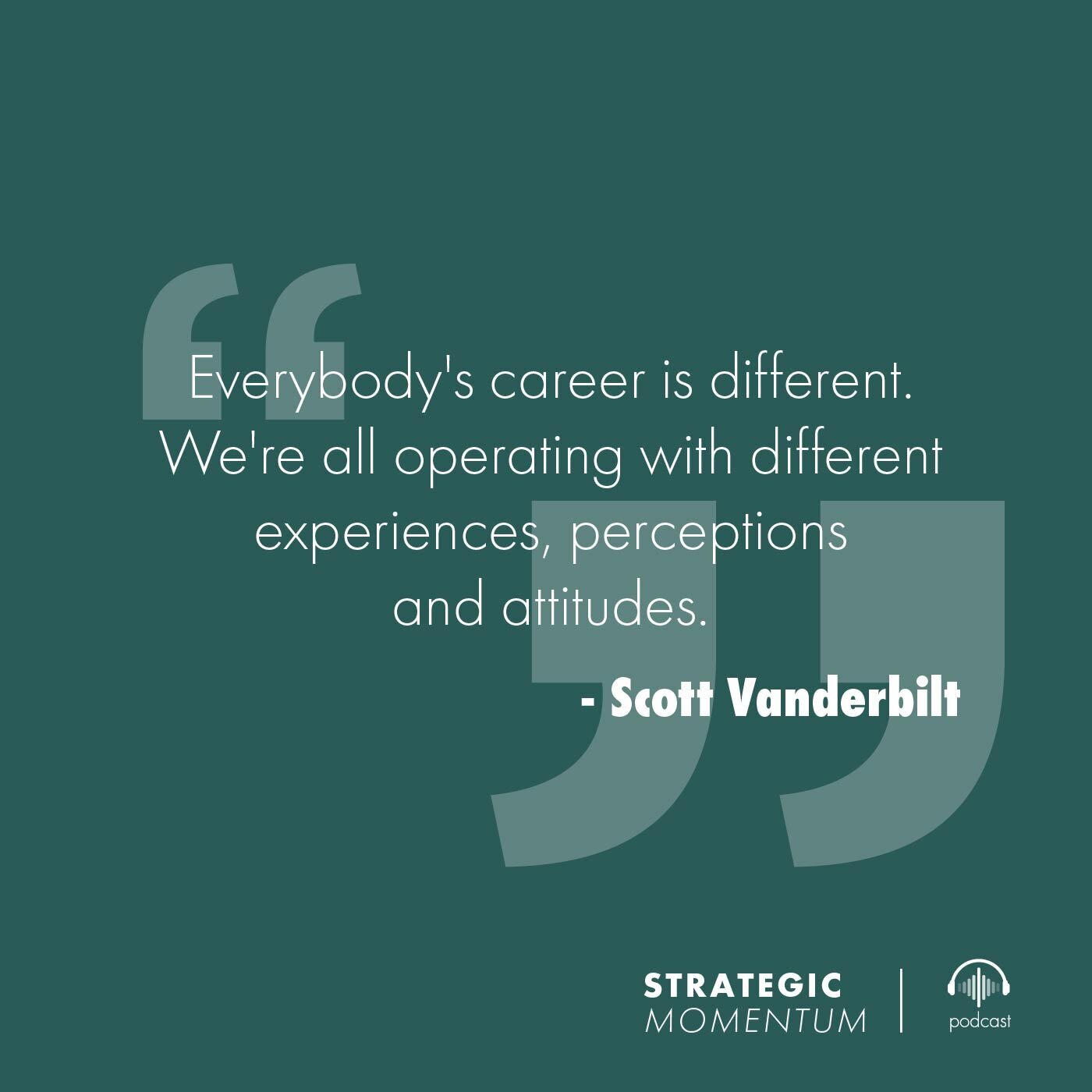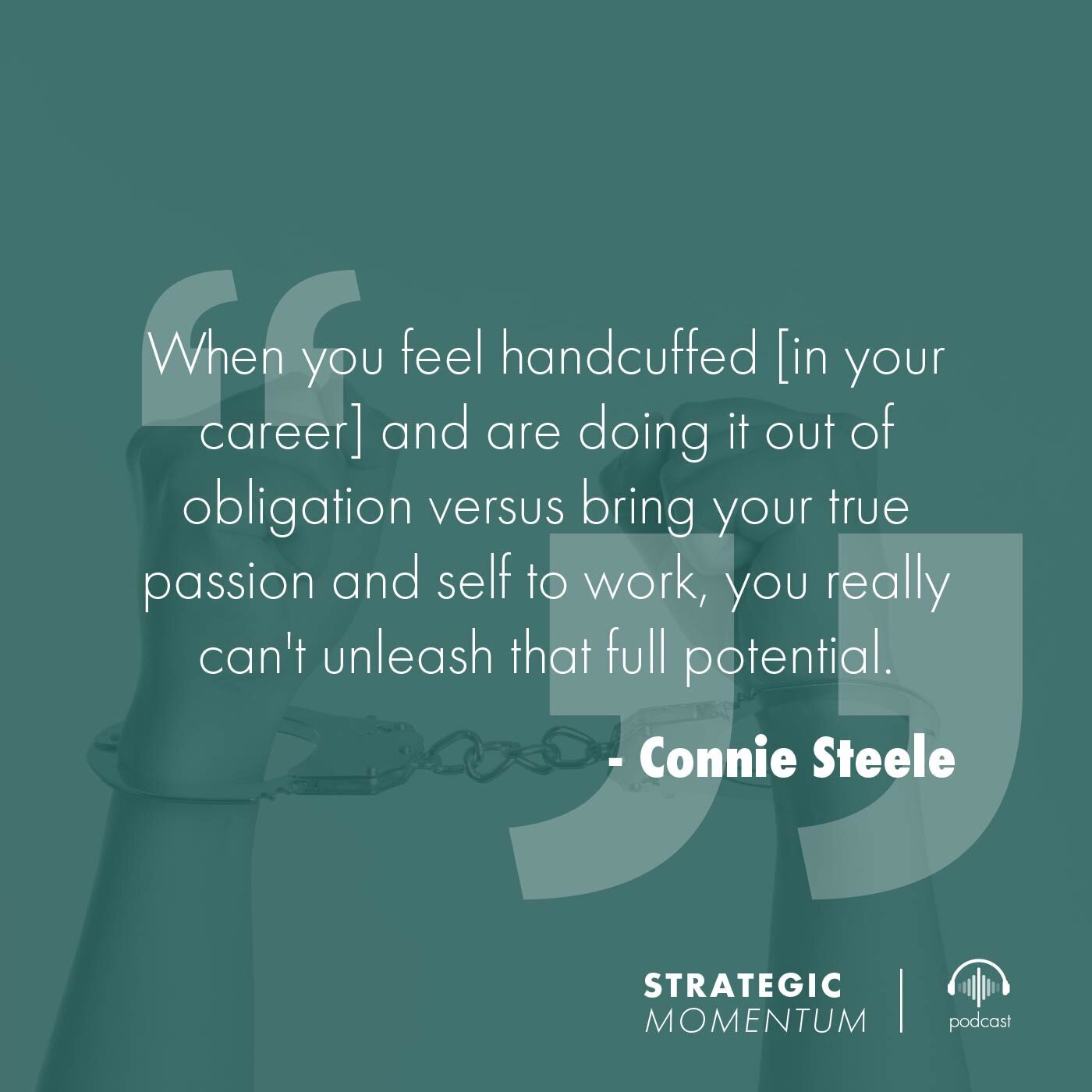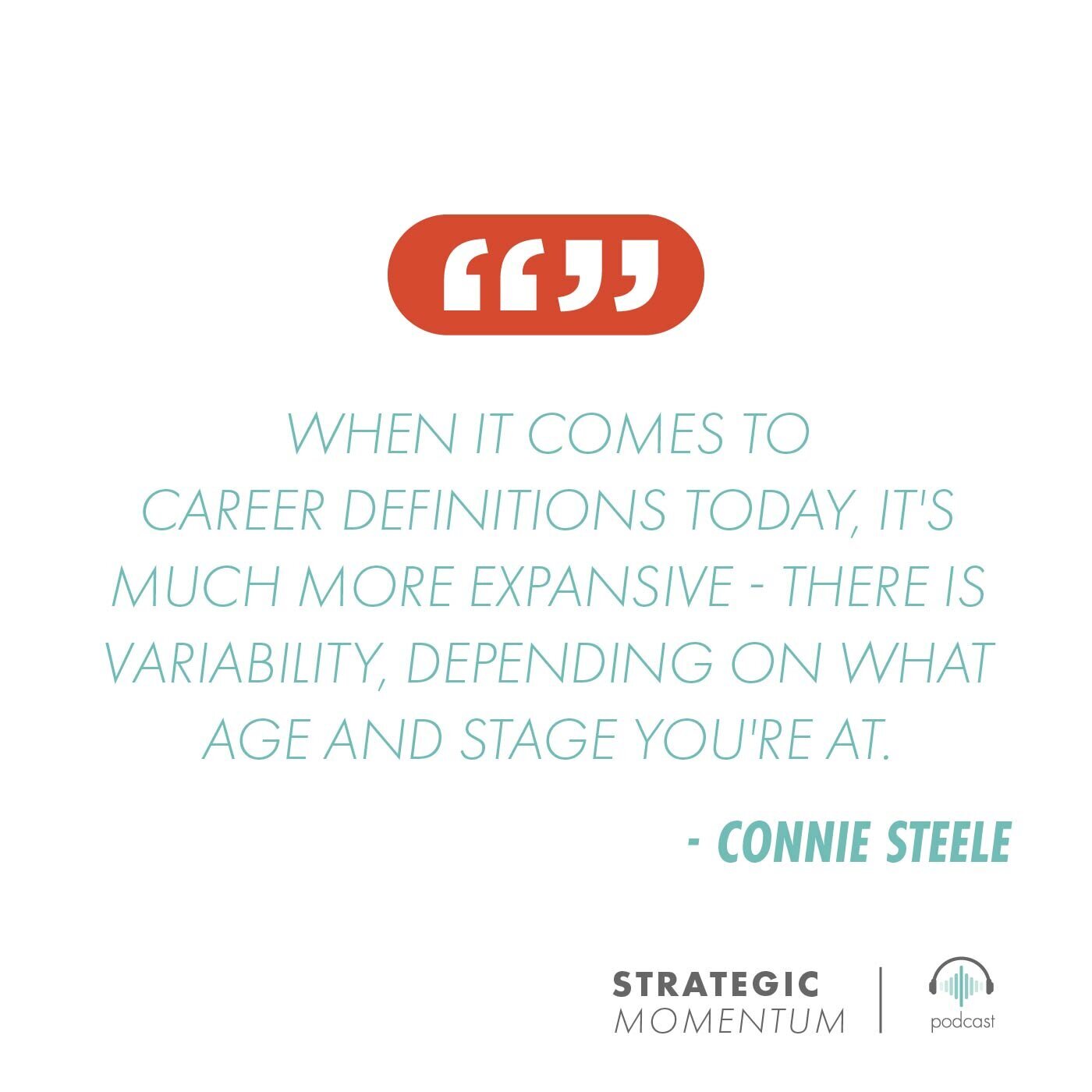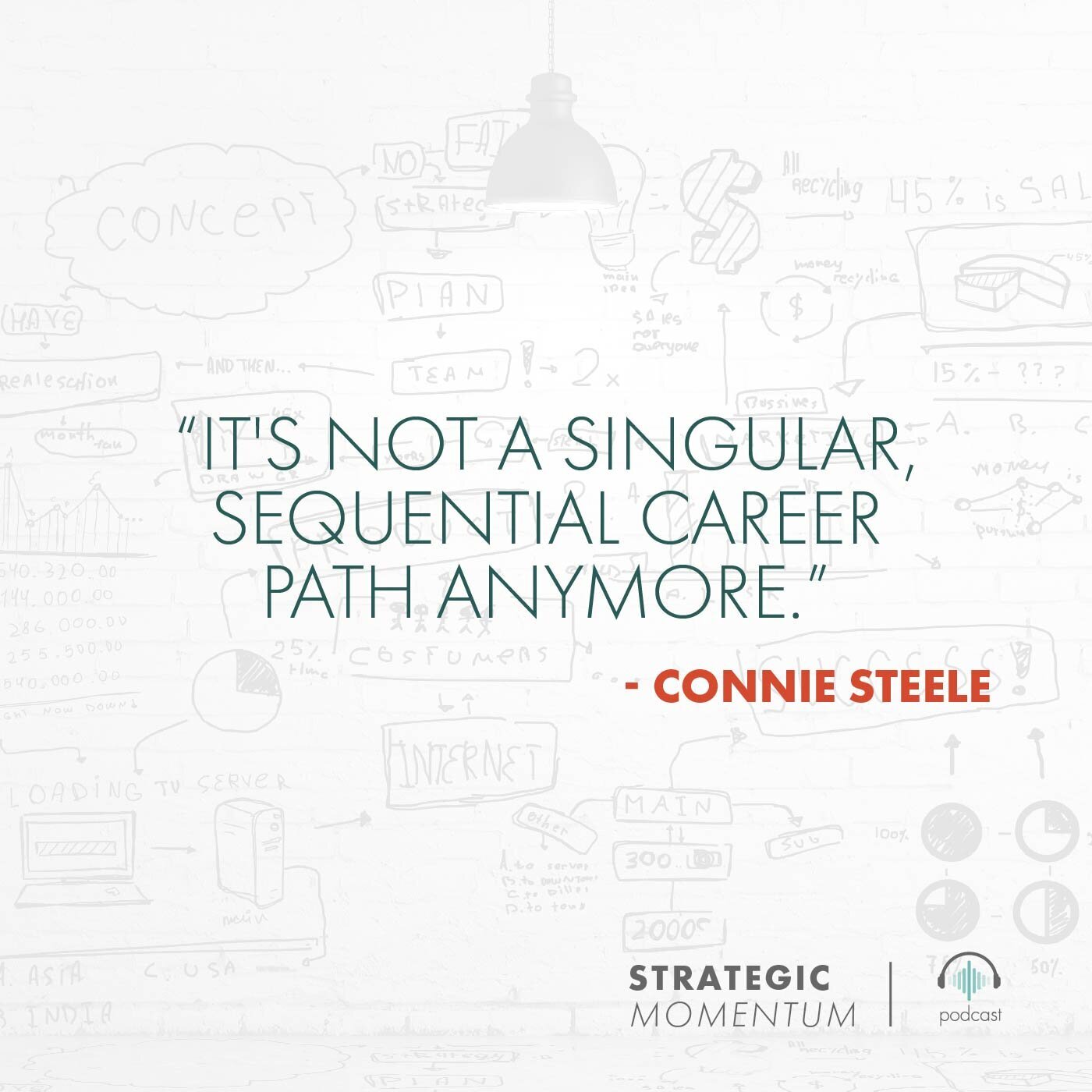Ep. 86 - The State of Work and Career Success: Goals, Drivers, Inhibitors and Attitudes with Connie Steele and Scott Vanderbilt
Find Us Wherever You Listen To Podcasts
It’s a new year, the early stages of a new decade, and a lot of things that used to be the norm just aren’t the norm anymore — especially when it comes to career growth and development.
Over the last 20 years, we’ve seen a shift from linear to non-linear career paths. The reality is most people don’t stay with one company, one role, or even one field anymore. Many find themselves pivoting frequently, creating what I call a career mashup.
And as a learning management platform that supports work and career success, Strategic Momentum’s mission is to study this revolution and spread the knowledge. We wanted to learn what work and career success mean today, what it takes to reach your potential, and what obstacles people are getting stuck on. So, we implemented a study to assess just that.
We also teamed up with Scott Vanderbilt, a seasoned market research executive with over 20 years of experience across a breadth of industries and audiences. As a research strategist who’s consulted for more than 100 companies, Scott has studied almost every type of audience there is and has always been fascinated by what moves people to think and act the way that they do.
Together, we’ve gone through our own various twists and turns with our careers and have observed the shifts of others in the broader marketplace. Our collective passions for learning about what’s driving the change that we see today, as well as how they have impacted individuals and the companies they work for, was the inspiration to develop this initial survey and get a baseline read. We saw a gap and wanted to fill that void.
So this episode is focused on sharing some of those initial findings from the survey that we fielded in the summer of 2020. We had 432 participants take the survey between the ages of 22-58. The data was balanced across multiple demographic factors such as age, ethnicity, gender, and education.
Key Takeaways
Depending on where you are in your career stage (commonly linked with age), what you want, need and believe will naturally vary.
With multiple generations in the workforce today, the differences in approach and perspective will inevitably create friction and conflict.
However, there are commonalities that are important to recognize, so we need to embrace that middle ground while realizing and accepting there are different ways to approach problems and solutions in a work environment.
Defining a Career
Career definitions today aren’t uniform in nature regardless of what age group you're in. When asked in an open-ended fashion, the responses were expansive:
Do what you love vs. do it for a paycheck
Focus on impact vs. paying the the bill
Earning income vs. satisfaction and achievement
Feeling/Attitude vs. specific thing you do
Job function/title vs. an aspiration/direction
Your journey vs. your current state
Work vs. work and life
When it comes to defining a career more concretely (based on specific definitions provided), two themes rose to the forefront: job satisfaction and using skills to do the work
A little over half identified a career as Having a job that is satisfying to me and Using my skills to perform work.
Performing work for money wasn’t the very top definition for anyone regardless of the age group highlighting the general sentiments that most want something more out of what they do than just being financially focused.
Yet, when we looked across age groups (20s, 30s, 40s, 50s), there was variability in what they felt best matched their personal definition of a career.
20s: Dominated by more foundational and primal needs (i.e. job that is satisfying, skills to perform work), likely because they are just starting out in their career in addition to other macro dynamics that have limited this generation’s ability to achieve the ‘dream.’
30s: Positively contributing to my field breaks through in terms of a career definition match. They were also more inclined to identify with Having the ability to do what I want to do.
40s: Have a particular focus on Performing work to build skills or experience. In this phase, it’s important to still stay relevant or do what it takes to move up which requires ongoing skill development.
50s: Job satisfaction rises to the top as the primary career definition yet with the Ability to do what I want to do at the bottom.
After working for that many years they may feel they don’t have the flexibility to make a pivot into something that could offer an alternative path.
Career Goals
When it came to what professionals wanted or were looking for in a career, income stability and fair compensation were singled out. This wasn’t surprising in light of the uncertainty that the pandemic has brought on.
However, bringing one’s passions to the forefront were also top goals, highlighting this desire to connect with what one does day in and day out, particularly among those in their 20s, 30s and 40s. Career goals by decades naturally had some variability between them:
20s: Many of the goals identified were equally important, highlighting the lack of a singular/narrow focus they have.
30s: Along with those foundational goals of income stability and compensation, aligning their passions and purpose as well as being able to build a successful business is what mattered to them.
40s: Career goals for those in their 40s were bringing ones’ passion to their career while also having a broad impact, developing their skills and taking control based on how they work or building their own business.
50s: Goals were dominated by income stability and compensation likely to due to the fact that they are in the maintenance phase of their career and also in their mindset of potentially slowing down.
Career Advancement Drivers
Overall, soft skills, work mentality, culture, work style, job fulfillment, and continuous learning were the most important factors in advancing one’s career. Hard skills, work experience and formal education did not seem to carry the same weight anymore.
Career Inhibitors
There are two major factors that were identified as inhibitors to one’s career across all the age groups — culture and management structure.
This wasn’t surprising as many are aware of the negative dynamics that inherently occur with workplace toxicity and lack of management clarity.
Other factors that were noted to impact forward movement were the following:
A lack of mentors
Limited soft skills
No access to on-the-job training
Work and Career Attitudes
When it came to attitudes around their career, the following attributes were commonly cited across all the age groups:
The importance of relationships and working with others
Contributions in the workplace - The ability to have a positive impact internally and externally (company and clients)
Ongoing skill development to increase their value including soft skills
Diversity in experiences and openness to new approaches
The priority attitudes and perspectives across the decades also aligned to their generational frame of reference:
20s: Aligning passion and purpose is something they identified with more than any other age group.
30s: Those in their 30s (millennials) strongly believed in collaboration at all levels.
40s: For those that are mid-career, they realized that network expansion is critical and felt most strongly about this as compared to other groups.
Implications
Careers paths are not singular or sequential anymore. They now involve being able to bring your whole self to work.
With workers having multiple career goals, particularly up-and-coming and new leaders, no one career path is going to satisfy everything they want or need.
Younger generations are adapting extremely well to change because they've been forced to. They are figuring what they want and need faster than the generations before them.
With differing goals, experiences, perceptions and attitudes with today’s broad range of workers, it’s necessary to find common ground and alignment to move forward.
Individuals are looking at what they want individually not as part of a corporate entity. As a result, companies have to learn to adapt and it's not a one-size-fits-all [when it comes to helping employees advance their career.]
Resources:
Connect with Scott on LinkedIn
Check out the State of Work and Career Success Study findings










